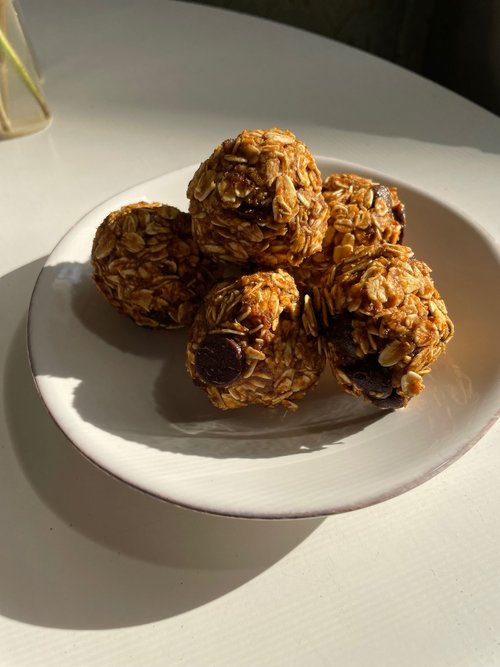The human body can survive for weeks without food but only for a few days without water. The body is composed of 50-75% water. Water is the basis of blood, digestive juices, urine, and sweat, and is found in lean muscle, fat, and bones.
Since the body cannot store water, we need fresh water every day to make up for losses in the lungs, skin, urine, and feces. The amount we need depends on our body size, metabolism, weather, the food we eat and our activity level.
Water in our body
Some facts about our in-house water supply include:
Men have higher body water content than women, and it decreases with age.
Most adult adults lose about 2.5 to 3 liters of water per day. Water loss may increase during hot weather and during prolonged exercise.
Older people lose about 2 liters of water every day.
Air travelers may lose approximately 1.5 liters of water during a 3-hour flight.
The lost water needs to be replenished.
Importance of water
Water is required for most body functions, including:
Maintains the health and integrity of every cell in the body.
Keep blood flowing through blood vessels with enough fluid.
Helps eliminate the body’s metabolic by-products, excess electrolytes (such as sodium and potassium) and urea, a waste product formed through dietary protein processing.
Regulation of body temperature through sweating.
Moisturizes mucous membranes (such as those of the lungs and mouth).
Lubricates and cushions joints.
Keeping your bladder free of bacteria reduces the risk of urinary tract infections (UTIs) such as cystitis.
Help digestion and prevent constipation.
Moisturizes skin to maintain its texture and appearance.
Transport nutrients and oxygen to cells.
Acts as a shock absorber during pregnancy in the eyes, spinal cord, and amniotic sac surrounding the fetus.
Water in our food
Most foods, even those that look hard and dry, contain water. The body obtains approximately 20% of its total water requirements from solid food alone.
The process of digesting food also produces a small amount of water as a by-product that can be used by the body. The water obtained in this way can meet about 10% of the body’s water needs.
The remaining 70% or so of water your body needs must come from liquids (liquids)
Recommended dietary fluid intake
The Australian Dietary Guidelines recommend we drink more water, but how much is enough?
The amount of fluid your body needs each day depends on several factors, such as:
your gender
age
how active are you
whether you are pregnant or breastfeeding
lifestyle.
How to get enough fluids in your diet
If the thought of having to drink lots of water every day doesn’t appeal, don’t worry – fluids include fresh water and all other liquids (such as milk, coffee, tea, soups, juices and even soft drinks).
Fresh water is the best drink as it contains no energy (kilojoules) and is best for hydrating the body. Tap water is also mostly free and available wherever you go.
However, milk is about 90% water, making it an important fluid, especially for children. Remember to choose whole milk for children under 2 years old and low-fat and reduced-fat milk for everyone else.
Tea is also an important source of fluids. Tea can help you meet daily fluid intake recommendations and is a source of antioxidants and polyphenols, which appear to protect against heart disease and cancer.
If you like to get some liquid from fruit, eat whole fresh fruit instead of drinking juice – you’ll still get the delicious juice (liquid), but you’ll also benefit from the extra fiber and nutrients while avoiding juice of extra sugar.
Tips for drinking more water
Add a splash or slice of lemon or lime, or some strawberries or mint leaves to plain water for added variety.
Keep a bottle or glass of water on your desk or in your bag.
Drink some water with every meal and snack.
Add ice cubes made from fresh fruit to a glass of water.
Limit mineral water intake
Commercial bottled mineral water contains salt, which can cause fluid retention and swelling, and even increase blood pressure in susceptible people. Limit the amount of mineral water you use or choose low-sodium varieties (less than 30 milligrams of sodium per 100 milliliters).
If you like sparkling water, consider investing in a home soda machine so you can use only tap water and have fresh water available when you need it.
Fluoride in water
Another benefit of drinking tap water (reticulated or tap) in Victoria is that in most areas, fluoride is added to the water. Bottled water usually doesn’t have high fluoride content. Tap water fluoridation helps prevent tooth decay and is a safe and effective way to provide dental health benefits to everyone.
Avoid sugary and artificial sweetener drinks
The Australian Dietary Guidelines recommend that all Australians limit their intake of added sugar drinks. This includes:
Sugary soft drinks and liqueurs
fruit drinks
vitamin water
Flavored mineral water
Energy and sports drinks.
Drinking sugary drinks can provide additional energy (kilojoules) to the diet but not other essential nutrients. There is strong evidence linking the consumption of sugary DINK to excess weight gain in children and adults, as well as reduced bone strength and tooth decay. Energy added to diet by artificially sweetened beverages (kilojoules)
Very little and therefore does not directly lead to weight gain. However, artificially sweetened drinks still maintain the “habit” of drinking sweet drinks. They may also lead to lower bone density (because people may drink less milk) and contribute to tooth decay due to their acidic nature.




